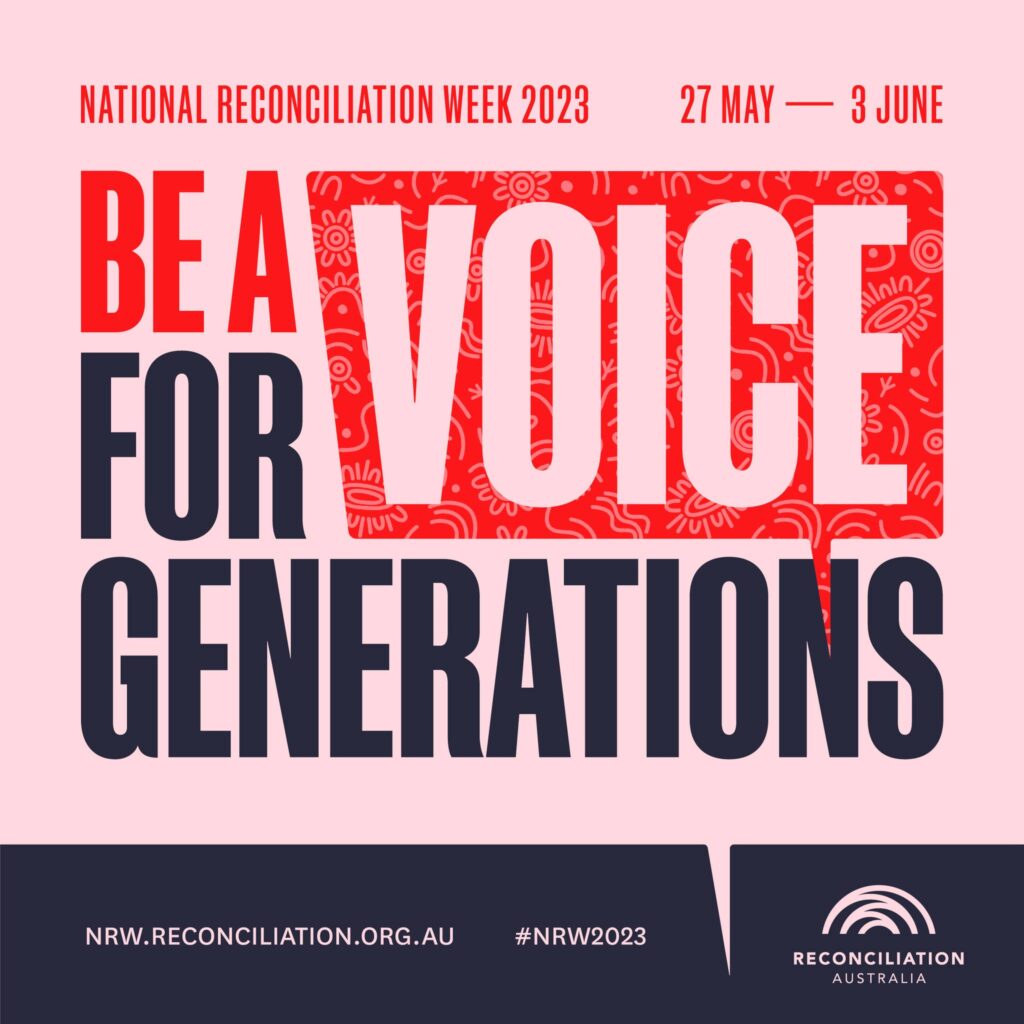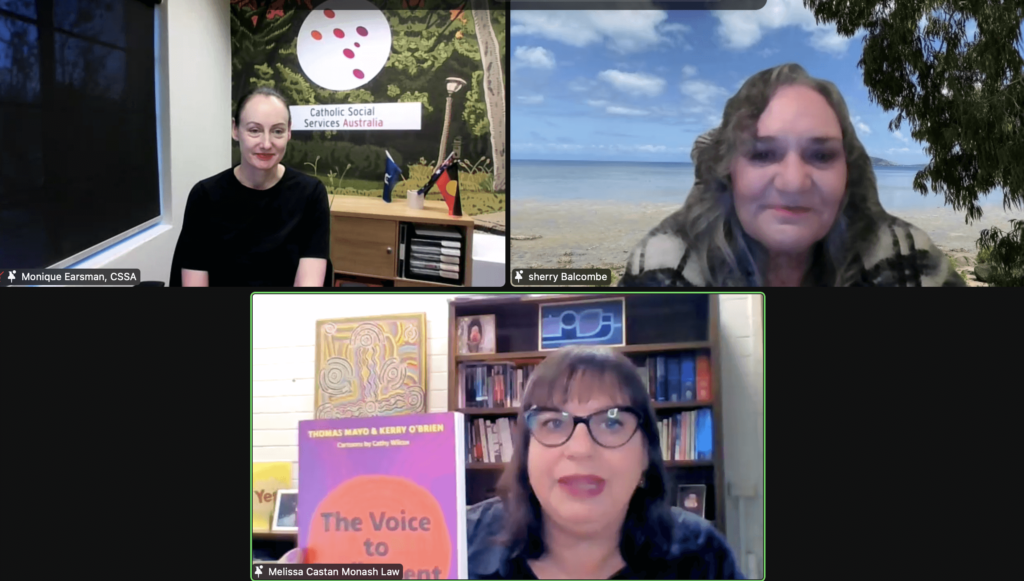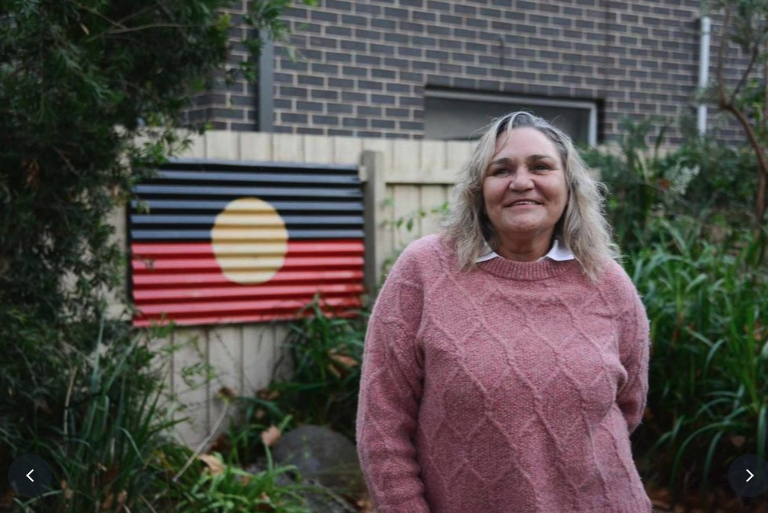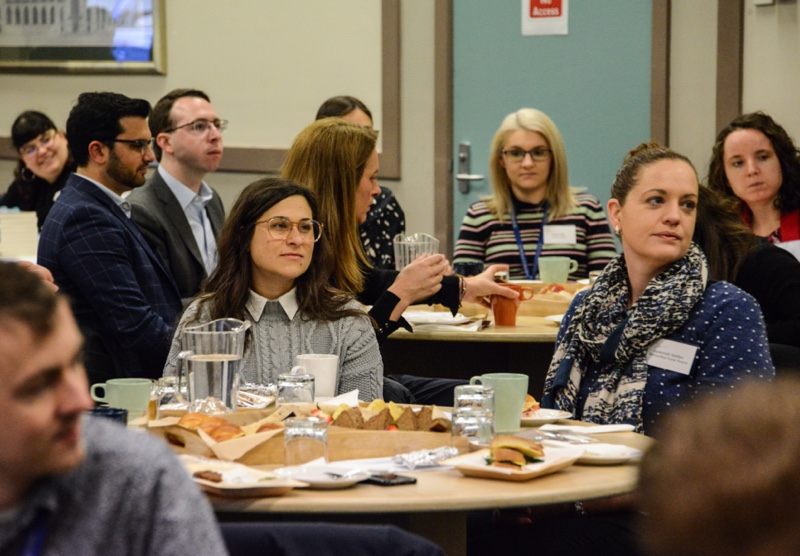In Australia, we are in the midst of National Reconciliation Week, 27 May-3 June. With the theme, ‘Be a voice for generations’, Australians are being called upon to ‘be a voice for reconciliation in tangible ways in our everyday lives—where we live, work and socialise’. It follows National Sorry Day last week, which remembers and acknowledges the mistreatment of Aboriginal and Torres Strait Islander people who were forcibly removed from their families and communities, and the sixth anniversary of the Uluru Statement from the Heart. In this Statement, an invitation was issued to walk with our First Nations people, ‘in a movement of the Australian people for a better future’.

Flowing from this invitation, Prime Minister Anthony Albanese announced in March that Australians will have an opportunity to have their say in a referendum later this year. The proposed question to be put to the Australian people at the referendum is A Proposed Law: to alter the Constitution to recognise the First Peoples of Australia by establishing an Aboriginal and Torres Strait Islander Voice. Do you approve of this proposed alteration? The establishment of this Aboriginal and Torres Strait Islander Voice advisory body is known as ‘the Voice’ or ‘Voice to Parliament’, and with the introduction of this proposal, the campaigns for both yes, and no, are in full swing.
To assist members of the Australian community to understand the referendum question and the implications of voting yes or no to the Voice to Parliament more deeply, Catholic Social Services Australia and Catholic Social Services Victoria are hosting three public webinars over the coming months. The first was held on Thursday 25 May, with more than 250 people registering for the webinar. Professor Melissa Castan, director of the Castan Centre for Human Rights Law at Monash University was the speaker. Sherry Balcombe, Djabaguy/Olkola woman originally from Far North Queensland, and Manager of Aboriginal Catholic Ministry Victoria also provided her perspective.
Prof. Castan specialises in human rights, public law, and constitutional law, and is associate dean in the Faculty of Law at Monash University in Melbourne. She is noted for having a particular passion and focus on the recognition and implementation of proper legal relations with First Nations People. In the opening, Prof. Castan provided the historical context within which the current referendum is taking place. ‘We all have an important role to play in addressing the dispossession caused and the continuing impact of what I sometimes call “Captain Cook’s law” in Australia, meaning the Anglo-Australian legal system that started with the Captain Cook story and which continues today,’ she said.
‘It’s been over 30 years since the Royal Commission into Aboriginal Deaths in Custody handed down a final report and told us the truth about what’s happening in incarceration places. It’s been over 30 years since the High Court handed down the judgment in the Mabo case, which told us the truth about Aboriginal and Torres Strait Islander connection to land and the ongoing cultural and legal relationships there. And it’s been over 25 years since the Bringing Them Home report was handed down by Sir Ron Wilson and Professor Mick Dodson, which told us the truth about how children are separated from families and the impact that has on culture and family life and kinship.
‘These landmarks in our Australian narrative are key steps for us in the national journey … those findings were really important in telling part of our national story, but I’m particularly looking forward to the next step in this journey of telling our national story, and that’s the referendum and the implementation of a Voice to Parliament at the federal level.’
Prof. Melissa Castan

Speaking of the referendum question and proposed amendment, Prof. Castan said, ‘the amendment into the Constitution is to just put in the advisory body, which is called the “Voice”.That’s all the amendment does for the Constitution. It doesn’t create any constitutional ripples or consequences. It just says there’s going to be an “extra bit”. It’s left with parliament to work out how that “bit” works. Will it have 24 people, or 36 people, or three people? Will it sit in three-year terms, or seven-year terms, or six-month terms?Will it talk about this range of topics or that range of topics? All of the machinations of how the Voice body will work, will be decided by parliament. Parliament retains the entire supremacy and sovereignty over the construction of the Voice.’
She went on to say: ‘As a representative and advisory body, I think the Voice can be understood as embedding a really genuine form of legal recognition and a very genuine form of political relationship-building between Indigenous communities, and the nation state—the state of Australia—and the very point of that recognition, of a Voice, is to stop Indigenous people from being controlled and coerced unilaterally by the state, and instead shift the relationship into multilateral relationships; to move from a majoritarian type of agenda, into a consultative and participatory type of agenda.’
Prof. Castan thinks it’s important not only for First Nations people, but also to the ‘national interest’ of Australia and its ‘constitutional democracy’.
She also spoke of the historical context within which Australia was colonised by Captain James Cook, and the term ‘terra nullius’, which means, ‘land belonging to no-one’. This in essence has been the cause of a long-lasting ‘fracture, or fault line’ in Australia’s history, she said. ‘That fault line is really saying that a whole lot of people were invisible in the Australian law’. It’s a ‘fault line’ that has never been ‘properly addressed’ in terms of the Constitution.
‘Now we have this opportunity that’s been brought about, to change that lack of hearing, to change that omission, and to listen properly to what Aboriginal and Torres Strait Islander people want us to do.’
Prof. Melissa Castan
The Uluru Statement from the Heart was created following broad Indigenous community consultations and helps us to understand the ‘why’ of this referendum, according to Prof. Castan. Reading from the Statement, she said: We seek constitutional reforms to empower our people and take a rightful place in our own country. We have the power over our destiny. Our children will flourish. They will walk into worlds and their culture will be a gift to the community. The closing line of the Uluru Statement from the Heart says: In 1967, we were counted. In 2017, we seek to be heard. We leave base camp and start our trek across this vast country. We invite you to walk with us in a movement of the Australian people for a better future.
‘And so, this is the reason why we are looking at a Voice and we have a proposal for the Voice … this invitation that has come from Indigenous people to us as part of the mainstream operating systems of the country … [they have] asked us to repair the fault line,’ said Prof. Castan. ‘We can’t go back into history and undo the mistakes, but we can work now from the present and into the future in a very constructive way.
‘It’s my hope that as a community, and particularly the communities that we work in, that we can really contribute actively and very intentionally to that legal and political form, which is forming that next step in this journey.’
Sherry Balcombe shares her perspective on the Voice
Adding to the presentation given by Prof. Melissa Castan, Sherry Balcombe encouraged everyone to continue to seek ‘clarity’ around what the Voice actually means for Aboriginal and Torres Strait Islander people. ‘There’s a lot of white noise going on that people don’t really understand,’ she said, ‘so it’s about time we had a bit of clarity around what it does actually mean for us’.
‘We have to do something different for things to change for our people, and the only way that I can see that is if we have a voice around that table that is making decisions, and that they can talk with good faith, with open hearts and open minds, that we can sit down and we can have adult, mature conversations about how we can make a difference to our people.’

She reminded those gathered on the webinar that ‘the Uluru Statement from the Heart is an ‘invitation’ to the Australian people: ‘Please walk with us, join us on this journey, you have nothing to lose. You are going to gain 60,000 years of culture, of pride.
‘I think we’re in an incredible time in Australia’s history, and we’re about to change the tapestry of this country for all time. It’d be wonderful for the next generation of Australians to be able to be proud of their Aboriginal culture and to be able to share that.
‘We do want our culture to be a gift to this country. We want everybody to be proud that they live in the country with the longest continuous culture on the planet. We want everybody to share in it.’
Sherry encouraged everyone to‘educate’ themselves, saying ‘knowledge is power’. ‘Please don’t let this discussion be the end, let this be the beginning. I hope that we can continue to have some good information being shared so that people can make informed decisions. It’s about opening your heart and your soul and wondering, what would you want to happen to your family if you were in our situation? What would Jesus do in this situation?’
The Australian Catholic Bishops Conference has endorsed the Uluru Statement from the Heart, along with members of the Fifth Plenary Council of Australia. In a statement released earlier this month, the Bishops have encouraged Catholics to read and discuss the Uluru Statement from the Heart, and to take steps ‘to educate themselves as well as possible concerning the proposal to establish the Voice’.
‘This is an important moment in the history of the nation, and it can help us to move towards a deep and just reconciliation. It also offers a mechanism to improve the lives of Aboriginal and Torres Strait Islander Peoples.’
Australian Catholic Bishops Conference, May 2023
Further resources
The second Catholic Social Services webinar to help Australians understand the referendum and the implications of voting yes or now, will be held on Thursday 29 June 2023. Fr Frank Brennan SJ will speak on the Church, Catholic Social Teachings and engagement with First Nations Peoples. The third webinar will be held on Thursday 27 July, and will feature a panel of three Aboriginal and Torres Strait Islander voices—Uncle Rob Briggs, Aunty Violet Sheridan and Esmai Manahan. For more information and to book, click here.
Catholic Social Services Victoria has established a page on their website, Reconciliation in Australia, which contains a wide range of resources to assist the Catholic community to discern and discuss the referendum question and associated issues more deeply.

Join our mailing list
Keep up to date with latest news, information and upcoming events.
We respect your privacy, as outlined in our privacy policy.